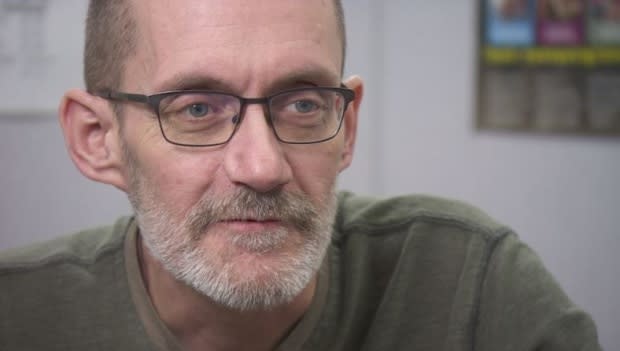Nunavut gov't may amend COVID-19 order banning gatherings after outcry from rights group
The Nunavut government says it will work on "potential amendments" to a COVID-19 public health order after it received a letter with "grave concerns" about the order's constitutional legality from the Canadian Civil Liberties Association.
The government said the potential amendments would define what a gathering is. "The effect of the order will not change, but the amendments will provide better definitions as to what constitutes a gathering," Jessica Young, director of policy at the territory's Justice Department said in an email.
Michael Bryant, head of the the Canadian Civil Liberties Association, said he's received reports of Nunavut RCMP knocking on people's doors to ensure they are following mandatory self-isolation orders.
That amounts to a warrantless search, which is certainly unconstitutional, Bryant told CBC News.
"The constitution has not been suspended, there is no legal power that allows police to enter people's homes for goodness sakes, in the absence of a warrant. Period," said Bryant, who wrote the April 8 letter.
Young said the department would not comment on the reported house calls by the RCMP, which is under contract to the department.
She said "all enforcement actions ... must comply with the [Public Health] Act and the Canadian Charter of Rights and Freedoms."
It specifically and purposefully limits freedom of religion without any exception. - Michael Bryant, Canadian Civil Liberties Association
"The restrictions in the current orders are consistent with the emergency orders in force in the rest of Canada," Young wrote.
Nunavut RCMP denied making any quarantine-related house calls.
The Public Health Act allows officers to enter a dwelling without a warrant only if there is a "serious and immediate risk to public health." But that is unlikely to happen in this pandemic, Young said.
"If a public health official or a peace officer wants to enter a dwelling, that official will be asking permission to enter, or will get a warrant," Young wrote.
Careless wording, says Bryant
But Bryant says the order, in effect since March 20, is neither consistent with the charter nor with other Canadian jurisdictions.
The "Order Restricting Mass Gatherings," signed by Dr. Michael Patterson, Nunavut's chief public health officer, says "all public gatherings are prohibited," and "all in-person religious, cultural and spiritual gatherings are prohibited."

The wording of this order is careless, overly broad and easily amended, Bryant argued in his letter.
"It specifically and purposefully limits freedom of religion without any exception. It is one thing to limit large church or spiritual get-togethers because they are large gatherings of people. It is another to limit them because they're religious," he wrote.
And "public gathering" is not defined in the order.
That differs from every other Canadian jurisdiction, which does not target religious gatherings, but does define how many people make up a public gathering, Bryant added.
Young said the inclusion of "religious gatherings" in the order was drawn from medical evidence and the clusters of COVID-19 cases in the U.S. linked to church services.
In the Northwest Territories, for example, an order prohibits all indoor gatherings other than those with members of the same household, and prohibits outdoor gatherings of more than 10 people. In Yukon, its order says no more than 10 people "may congregate in the same place, except when they are congregating in the place where they all reside."
'We're not in the middle of an invasion'
"More concerning," Bryant said in his letter, is that the Nunavut order permits "warrantless entry into premises."
The order says peace officers — RCMP, wildlife, conservation and bylaw officers — "may enter a dwelling if a) the occupant or person in charge of the dwelling consents; or, b) if the dwelling, or something in or only accessible through the dwelling, is a serious and immediate risk to public health."

The Public Health Act "is not so broad as to permit a territorial public health officer to authorize warrantless entry," Bryant wrote.
Meanwhile the consensual entry is so broad that a landlord could give an officer entry to a tenant's dwelling, "which on its face is contrary to constitutional law," he said.
"Moreover, the phrase 'serious and immediate risk to public health' is too broad, including everything from flu contamination to opiate manufacturing," Bryant said.
The risk is to public health, not public order. - Michael Bryant, Canadian Civil Liberties Association
The government said restrictions on individual rights and freedoms must be "no greater than is reasonably required in the circumstances to address the public health emergency."
But that's exactly what Bryant says the government has failed to do with this order.
"We're not in the middle of an invasion of Martians or a foreign country or any violent threat ... The risk is to public health, not public order, which is why this all needs to be about public health efforts," Bryant told CBC.


